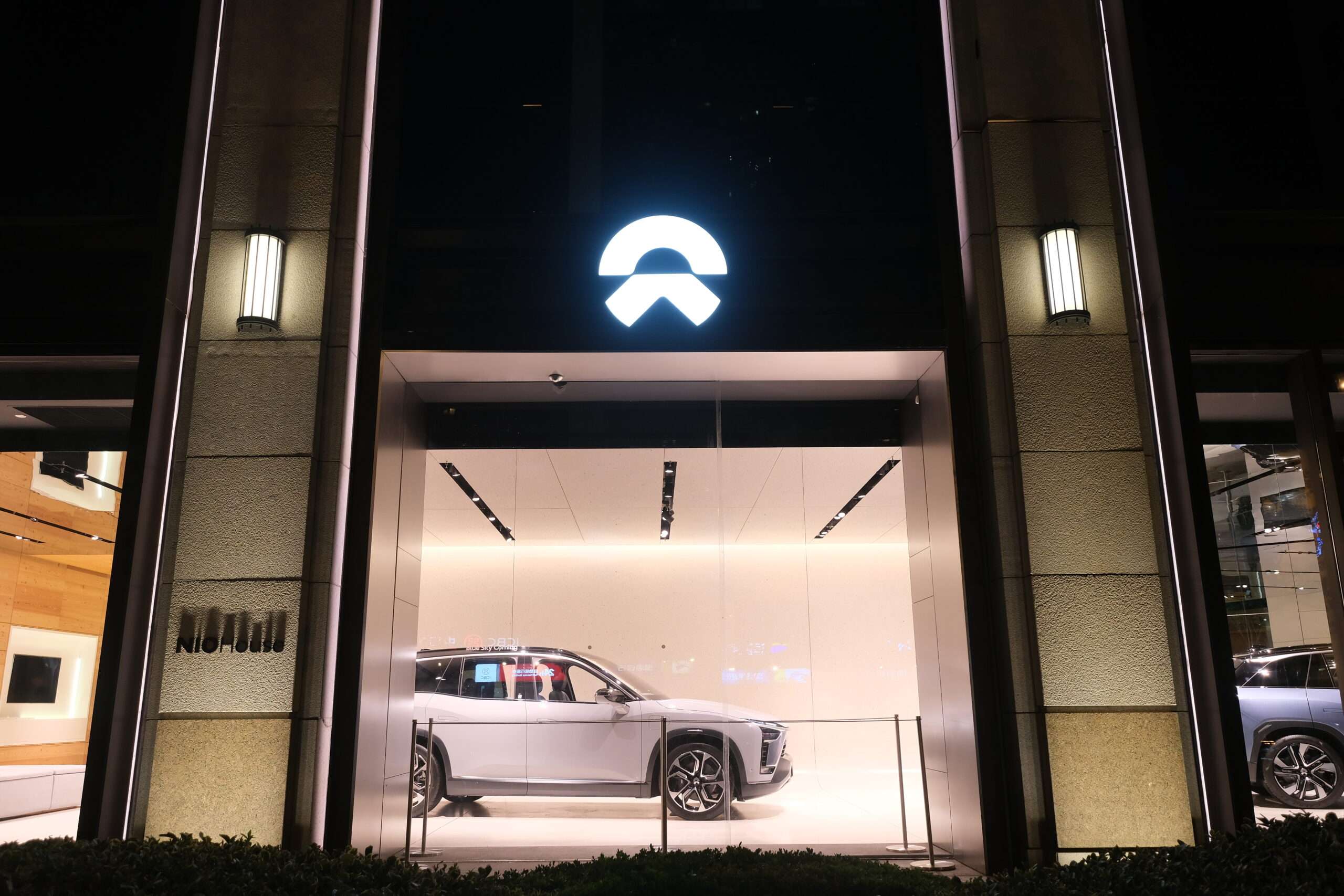383490
Insight posts
Insight posts
When influence goes underground, weaponized corruption becomes the silent force reshaping global power—no armies required.
374916
Insight posts
Insight posts
Universal Basic Income could redefine how we work, live, and spend, but can society handle the shift from paycheck to free check?
369133
Signals
https://www.channelnewsasia.com/world/france-new-government-under-pressure-multiple-fronts-michel-barnier-emmanuel-macron-4623921
Signals
Channelnewsasia
We know it's a hassle to switch browsers but we want your experience with CNA to be fast, secure and the best it can possibly be. To continue, upgrade to a supported browser or, for the finest experience, download the mobile app.
369132
Signals
https://dmarketforces.com/hydrocarbon-revenue-nigeria-to-breach-2024-budget-deficit-report/
Signals
Dmarketforces
Nigerian government will likely ramp up more borrowings as uncertainties in the global commodities market saw crude oil price benchmark tank below expectation. It is not only that prices have been fluctuating below expectation, oil production volume has continue to trailing target. . For most part of the year, production volume has remained depressed on the back of low investment in oil assets.
369131
Signals
https://www.newsweek.com/what-can-cambodia-possibly-offer-us-businesses-opinion-1959483
Signals
Newsweek
What nation offers fertile lands, a youthful, skilled workforce, a prime location within one of the world's fastest-growing regions, and access to a regional market of over 660 million consumers?The answer is Cambodia, and it might not be the first country that comes to mind.As the United States...
FUTURE TIMELINE
COUNTRY FORECASTS
369130
Signals
https://www.irishtimes.com/business/2024/09/26/state-set-for-equivalent-of-another-apple-windfall-in-coming-years/
Signals
Irishtimes
As the US drags its heels over the implementation of the global deal struck three years ago to levy a minimum 15 per cent tax on large corporations - the Organisation for Economic Co-operation and Development's (OECD) so-called Pillar Two tax reforms - efforts to even secure political agreement...
FUTURE TIMELINE
COUNTRY FORECASTS
369129
Signals
https://www.insidermonkey.com/blog/10-best-italian-stocks-to-buy-now-2-1353838/
Signals
Insidermonkey
In this piece, we will take a look at ten best Italian stocks to invest in. Italy's economy has shown remarkable resilience in the face of recent crises, but its growth is now slowing due to tighter financial conditions. As the world's eighth-largest economy and the third-largest in the European Union, Italy has consistently been a significant player in the global economic landscape.
FUTURE TIMELINE
COUNTRY FORECASTS
369128
Signals
https://simple.wikipedia.org/w/index.php?diff=9795313&oldid=9777079&title=Emmanuel_Macron
Signals
Simple
Line 99:
Line 99:
| [[File:Grand Crest Ordre de Leopold.png|80px]] ||[[Belgium]] || Grand Cordon of the [[Order of Leopold (Belgium)|Order of Leopold]] || 19 November 2018
| [[File:Grand Crest Ordre de Leopold.png|80px]] ||[[Belgium]] || Grand Cordon of the [[Order of Leopold...
Line 99:
| [[File:Grand Crest Ordre de Leopold.png|80px]] ||[[Belgium]] || Grand Cordon of the [[Order of Leopold (Belgium)|Order of Leopold]] || 19 November 2018
| [[File:Grand Crest Ordre de Leopold.png|80px]] ||[[Belgium]] || Grand Cordon of the [[Order of Leopold...
FUTURE TIMELINE
COUNTRY FORECASTS
367903
Signals
https://www.investmentexecutive.com/news/research-and-markets/global-economy-has-turned-the-corner-oecd-says/
Signals
Investmentexecutive
"Inflation is projected to be back to central bank targets in most G20 economies by the end of 2025," it said, forecasting headline inflation for the G20 to decline from 5.this year to 3.in 2025, "with core inflation in the G20 advanced economies easing to 2.in 2024 and 2.in 2025." "Declining inflation provides room for an easing of interest rates, though monetary policy should remain prudent until inflation has returned to central bank targets," said OECD secretary-general Mathias Cormann in a release.
FUTURE TIMELINE
COUNTRY FORECASTS
367901
Signals
https://economictimes.indiatimes.com/news/economy/indicators/india-champion-of-growth-in-g20-lvaro-pereira-chief-economist-oecd/articleshow/113677700.cms
Signals
Economictimes
NEW DELHI: India is the "champion" of growth among the G20 countries and its expansion will propel the global economy, OECD chief economist Álvaro Pereira said. He remained optimistic about domestic demand maintaining its upward trajectory. Pereira also flagged the need for continued emphasis on...
FUTURE TIMELINE
COUNTRY FORECASTS
367902
Signals
https://www.nzherald.co.nz/business/inland-revenue-raises-capital-gains-tax-questions/3ZYLYKVYVBC45OWVK7B3QL62HU/
Signals
Nzherald
In its consultation document, it said it wanted to open discussion on the challenges the tax system faced and possible options to address that."There are several trends that could have significant implications for our tax system in the future. The most relevant trend is that of increased fiscal...
367904
Signals
https://oilprice.com/Energy/Natural-Gas/Low-US-Natural-Gas-Prices-Weigh-on-Oil-Producers-Cash-Flows.html
Signals
Oilprice
The slump in U.natural gas prices in early 2024 hit the cash flow generation of dozens of listed, mostly oil-producing companies. The financial reports of 36 publicly traded oil companies that produce most of their crude oil in the United States showed that combined cash from operations dropped to $23.3 billion in the first quarter of 2024, down by 12% compared to the first quarter of last year, the U.Energy Information Administration (EIA) said in an analysis this week.
367905
Signals
https://www.theguardian.com/business/live/2024/sep/25/rightmove-offer-rupert-murdoch-rea-chinese-stocks-rally-business-live
Signals
Theguardian
Key eventsShow key events onlyPlease turn on JavaScript to use this featureClosing summaryThe global economy is "turning a corner", according to the latest outlook from the Organisation for Economic Cooperation and Development (OECD) as it upgraded the UK's growth forecast for this year to faster...
367909
Signals
https://wattsupwiththat.com/2024/09/20/ev-sales-collapse-in-germany/
Signals
Wattsupwiththat
From NOT A LOT OF PEOPLE KNOW THAT
By Paul Homewood
h/t Paul Kolk
They don't want the useless things in Europe either!
Germany has suffered a "spectacular" drop in electric car sales as the European Union faces growing calls to delay its net zero vehicle targets.
The European Automobile...
By Paul Homewood
h/t Paul Kolk
They don't want the useless things in Europe either!
Germany has suffered a "spectacular" drop in electric car sales as the European Union faces growing calls to delay its net zero vehicle targets.
The European Automobile...
367906
Signals
https://www.channelnewsasia.com/business/oecd-calls-higher-property-taxes-fight-debt-4636036
Signals
Channelnewsasia
We know it's a hassle to switch browsers but we want your experience with CNA to be fast, secure and the best it can possibly be. To continue, upgrade to a supported browser or, for the finest experience, download the mobile app.
367908
Signals
https://www.campaignasia.com/article/us-election-outcome-will-affect-asias-workforce-and-productivity-anthony-scaram/498503
Signals
Campaignasia
Former White House communications director, financier, and founder and managing partner at SkyBridge Capital, Anthony Scaramucci, is no stranger to the world of finance and international trade. Known for his brief but high-profile communications stint with the Trump administration in 2017, Scaramucci recently took the stage at the three-day Journal House event for The Wall Street Journal (WSJ) in Singapore, one of several appearances during his visit.
367907
Signals
https://reason.com/2024/09/24/most-chinese-e-v-firms-are-unprofitable-local-governments-keep-propping-them-up-anyway/
Signals
Reason
The odds are stacked against many Chinese electric vehicle (E.V.) firms. And yet they keep hanging on. A decline in federal government subsidies, tariffs from abroad, intense price competition, and waning demand should have led to a consolidated Chinese E.V. market. But local governments have...
365548
Signals
https://www.forexlive.com/news/opec-extends-oil-demand-outlook-to-2050-sees-now-peak-demand-on-the-horizon-20240924/
Signals
Forexlive
High risk warning:
Foreign exchange trading carries a high level of risk that may not be suitable for all investors. Leverage creates additional risk and loss exposure. Before you decide to trade foreign exchange, carefully consider your investment objectives, experience level, and risk...
Foreign exchange trading carries a high level of risk that may not be suitable for all investors. Leverage creates additional risk and loss exposure. Before you decide to trade foreign exchange, carefully consider your investment objectives, experience level, and risk...
364406
Signals
https://www.channelnewsasia.com/world/pressure-piles-new-french-government-day-one-4624381
Signals
Channelnewsasia
We know it's a hassle to switch browsers but we want your experience with CNA to be fast, secure and the best it can possibly be. To continue, upgrade to a supported browser or, for the finest experience, download the mobile app.
364089
Insight posts
Insight posts
ESG's focus sharpens on emissions, resulting in corporate clean-ups and increased green investments.
363394
Signals
https://www.newstrail.com/polycarbonate-market-growth-drivers-giants-strategic-moves-boosting-sales-entec-polymers-rtp-company/
Signals
Newstrail
The Latest Released Global Polycarbonate market study has evaluated the future growth potential of Global Polycarbonate market and provides information and useful stats on market structure and size. The report is intended to provide market intelligence and strategic insights to help decision-makers take sound investment decisions and identify potential gaps and growth opportunities.
363395
Signals
https://economictimes.indiatimes.com/news/economy/foreign-trade/india-eu-to-begin-next-round-of-talks-on-free-trade-pact-on-monday/articleshow/113572133.cms
Signals
Economictimes
Senior officials of India and the 27-nation European Union (EU) will commence the next round of talks for a proposed free trade agreement from Monday here, an official said. The agreement is aimed at further boosting bilateral trade and investments between the two regions. The two sides are...
























